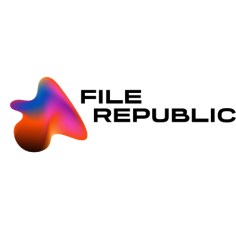Masking vs secure redaction in legal data management – find out more with File Republic
The storing and processing of data sets containing personally identifiable information (PII) is increasingly regulated and subject to stringent notification requirements in the event of data breaches. Legal data, including client files, case records, contracts, and privileged communications, often contain highly sensitive PII such as financial details, confidential health information, and proprietary data. When such information can be linked to a particular person or organisation, law firms and legal departments are automatically subject to strict regulations.
The legal industry, tasked with handling vast volumes of sensitive information, faces unique challenges as data breaches continue to rise. According to reports, legal organisations are increasingly targeted by cybercriminals due to the wealth of private and privileged data they possess. The consequences of mishandling this information extend beyond financial penalties to the loss of client trust and significant reputational damage.
Secure Redaction: Protecting Legal Data Beyond Traditional Masking
Many organisations traditionally rely on methods like masking or obscuring data within documents to achieve compliance. While these techniques visually hide information, they often leave the underlying data intact. This means that improperly implemented redaction can allow sensitive information to be exposed through technical methods or errors in digital manipulation.
This is where Secure Redaction becomes essential, providing a more reliable and permanent solution. Secure redaction ensures that sensitive data is not only visually concealed but also completely removed or replaced, rendering the original information irretrievable. Unlike basic masking, secure redaction eliminates the hidden risks associated with residual metadata or partial exposure.
Why the Legal Industry Needs Secure Redaction
- Compliance and Regulation: Legal organisations are heavily regulated, and mishandling sensitive data, especially in client communications or evidentiary records, can lead to severe legal consequences. Secure redaction provides a higher level of protection that aligns with data privacy regulations like the GDPR by completely eliminating the risk of recovery.
- Mitigating Breach Risk: Given the evolving tactics of cybercriminals, even robust encryption measures may not be foolproof. By securely redacting PII and sensitive content, organisations add an extra layer of data protection that operates independently of encryption. Thus, even if encrypted files are compromised, critical information remains securely erased.
- Confidentiality in Legal Proceedings: During legal reviews, discovery processes, or case sharing, redacting client data securely ensures confidentiality, protecting against inadvertent disclosures that could harm a client’s legal standing or a firm’s reputation. This also supports compliance with legal ethics guidelines around client confidentiality.
- Avoiding Notification Requirements: Secure redaction helps organisations bypass regulatory notification requirements in case of data breaches. Since PII is completely removed rather than merely masked, even if files are accessed without authorisation, individual privacy is not compromised, which could significantly reduce notification costs and the risk of legal liability.
Secure Redaction vs. Masking: The Clear Advantage
The consequences of improperly redacted documents can be dire. Basic visual redaction may seem adequate, but it carries hidden risks. If the underlying data is still present or recoverable, attackers or unauthorised users can easily extract it, leading to breaches that could cost a legal firm its clients and reputation.
Secure Redaction, by contrast, goes beyond visual obfuscation. It removes the sensitive data from all document layers, ensuring no traces remain within metadata or hidden files. It is akin to removing an entire sentence from a book rather than just covering it with ink—there is no possibility of “reading through” a securely redacted document. For the legal industry, which regularly deals with confidential records, witness information, case evidence, and proprietary documents, this level of redaction is crucial to client trust and regulatory compliance.
Secure Redaction using File Republic
As cyber threats continue to evolve and regulations tighten, legal organisations must re-evaluate their approach to data protection. Secure redaction offers a proactive solution, ensuring that sensitive PII is not just hidden but permanently and securely removed. This reduces the risk of breaches, maintains client trust, and helps organisations stay compliant with the highest standards of legal data privacy.
File Republic’s Privacy platform not only uses secure redaction to protect PII within your matter, but uses an eleven step formula for total file confidence, critically protecting and preserving the matter and applying a cryptographic tamper-proof seal.
To find out more about our approach to privacy get in touch and book a product walkthrough today.



